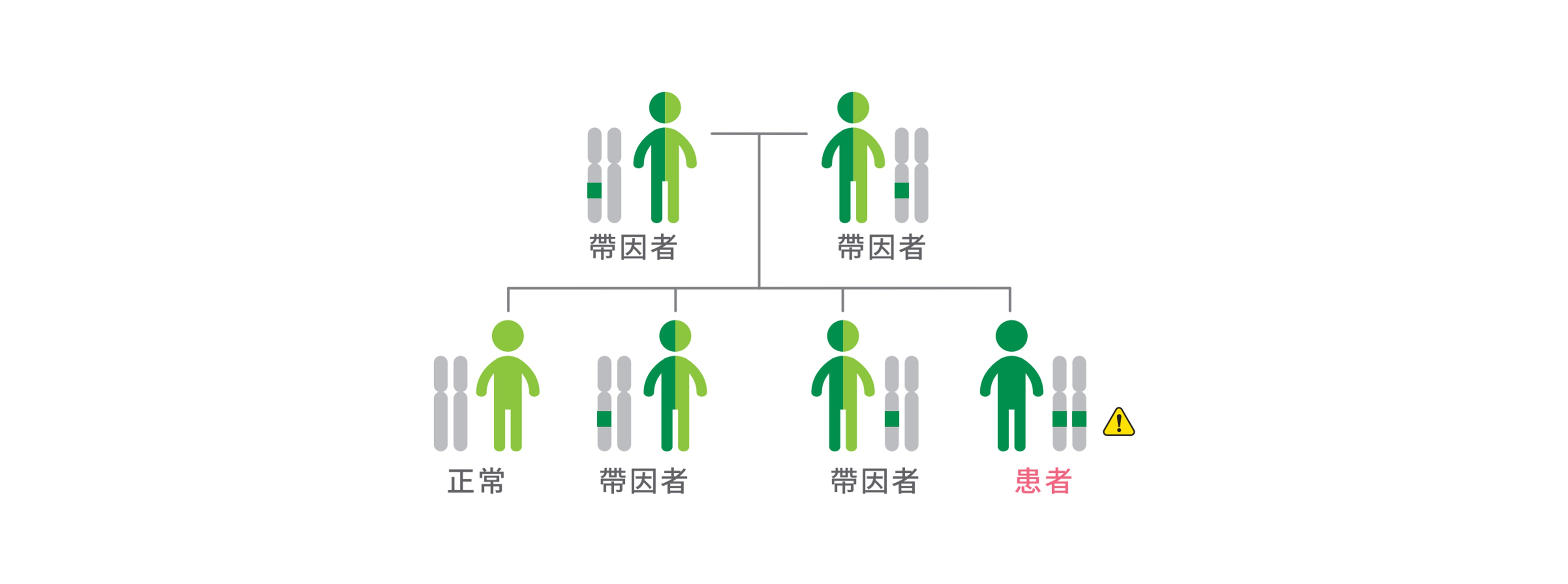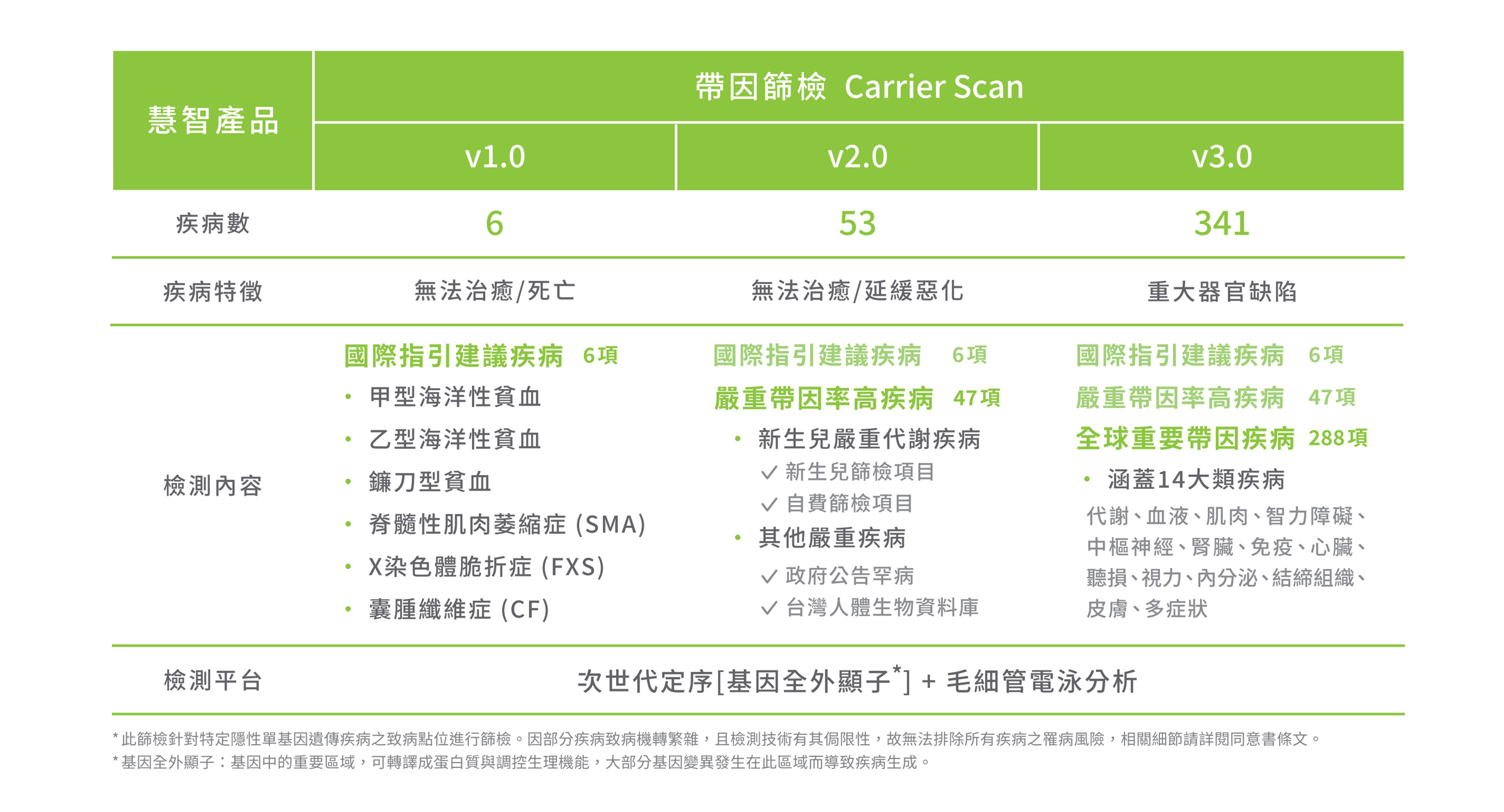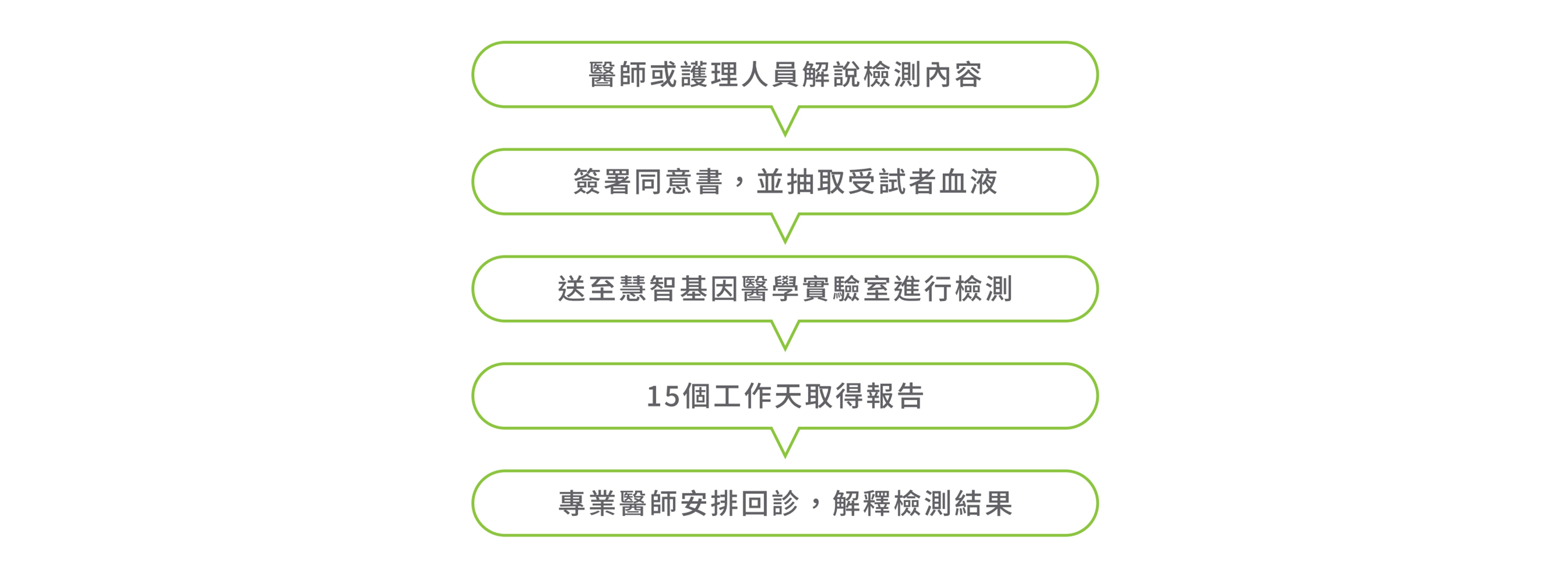👑 慧智帶因篩檢 v1.0/ v2.0/ v3.0
服務介紹
■ 帶因爸媽 不可忽視的隱藏危機
隱性遺傳疾病的「帶因者」,本身不會發病亦無任何症狀,但若夫妻雙方帶有相同隱性疾病的基因變異時,則有1/4機率生下重症寶寶,危及準媽媽或胎兒的生命與健康。

根據統計,每個人身上平均帶有2.8個隱性遺傳疾病基因,且新生兒的死亡有20%與隱性嚴重遺傳疾病有關。因此慧智利用最新次世代定序技術(NGS),一次篩檢多種基因變異,大幅降低隱性遺傳疾病的風險。

國際學會組織(ACOG/ACMG)共同指引建議,所有備孕及懷孕的婦女皆應接受帶因篩檢,v1.0針對全人種帶因率高的6個隱性遺傳疾病進行基礎的檢測,也是未來國際的共同趨勢。
◆ v2.0 嚴重帶因率高疾病
根據台灣人體生物資料庫(Taiwan Biobank)數據統計,約兩成亞洲人帶有隱性遺傳疾病基因。因此v2.0針對新生兒代謝與嚴重帶因率高之共53項疾病進行檢測,提早降低未來寶貝受到嚴重隱性遺傳疾病的危害。
◆ v3.0 全球重要帶因疾病
在地球村的時代,多種族融合狀況已非常常見,因此慧智v3.0嚴選全球人種皆適用的341種隱性遺傳疾病,涵蓋14種類疾病,期望為準爸媽們做到最完整的疾病把關,安心迎接健康寶貝的到來。
檢測說明
*此篩檢針對特定隱性單基因遺傳疾病之致病點位進行篩檢。因部分疾病致病機轉繁雜,且檢測技術有其侷限性,故無法排除所有疾病之罹病風險,相關細節請詳閱同意書條文。
*基因全外顯子:基因中的重要區域,可轉譯成蛋白質與調控生理機能,大部分基因變異發生在此區域而導致疾病生成。
適用對象
✔ 所有計畫生育或已懷孕的夫妻
✔ 夫妻為近親血緣
✔ 有遺傳疾病家族史
✔ 精卵捐贈者
檢測流程

慧智優勢

